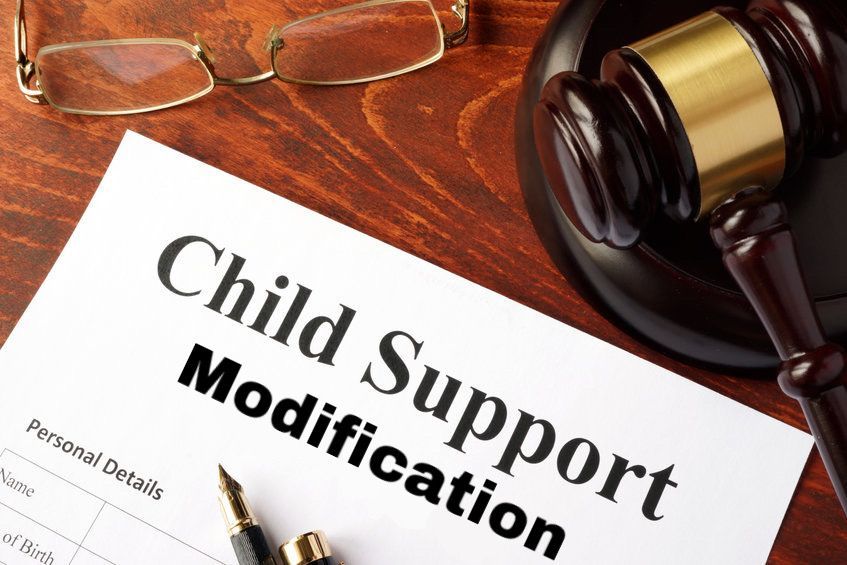Why is Moving Out the Biggest Mistake in a Divorce?
Moving out can hurt your chances of getting custody of your kids. It can drain your bank account. It can even make you look bad in court. In this guide, we'll explain why moving out is such a big problem. We'll also show you what to do if you're thinking about leaving or if you already left.
What Happens When You Move Out During a Divorce?
When you pack your bags and leave your home during a divorce, you're not just changing your address. You're changing how the court sees you. You're changing how much time you spend with your kids. And you're setting up financial problems that can last for years.
The Court May Think You Don't Care
Courts like to keep things the same for families during a divorce. This is called keeping the "status quo." When you leave the home, the judge might think you're okay with not living there. Later, if you want to come back or want the house in the divorce settlement, the judge may say no.
Some states even have a legal idea called "abandonment." This means you left your family without a good reason. If your spouse claims you abandoned them, it can make your whole divorce case harder to win.
Your Kids See Less of You
This is the biggest problem with moving out. When you leave, you're not there for breakfast. You're not there for homework help. You're not there to tuck your kids into bed. The parent who stays in the home spends more time with the children each day, and courts often see this parent as providing more stability.
In over half of child custody cases, both parents agree that the mother should have custody. But only 18% of cases result in both parents agreeing the father should have custody. If you move out and see your kids less, the court might think that's a good schedule to keep forever.
Money Gets Tight Really Fast
Running two homes costs a lot of money. You have to pay rent or a mortgage for your new place. But guess what? Courts often make you keep paying for the old home too even though you don't live there anymore. This includes the mortgage, electric bills, water bills, and other costs.
Many people who move out find themselves broke. They're paying double for everything. This makes it hard to afford a good lawyer. It makes it hard to get a nice place where your kids can visit. And it can drag on for months or even years.
How Moving Out Hurts Your Child Custody Case
If you have kids, this is where moving out really becomes a problem. About 43% of divorcing couples have minor children, making child custody a major concern in these cases. Your custody rights depend on showing the judge you're a good parent who's involved in your children's lives.
Less Time = Less Custody
Judges don't like to change a child's routine. If your kids are used to living with your spouse five days a week and seeing you two days a week, the judge will probably keep it that way after the divorce. The less time you spend with your kids now, the less time you'll get later.
Think about it. If you only see your children every other weekend, that's what the judge will think is normal. Even if you want to spend more time with them, the judge might say, "Well, this schedule has been working fine."
Where You Live Matters
When you move out, where you go is very important. If you move far from your children's school or force them to change their lives every time they visit you, it looks bad in a custody case.
The judge wants to see that you have a stable home. Your new place should have:
- Enough bedrooms for your kids to sleep comfortably
- A location close to their school and friends
- A safe neighborhood
- Space for them to do homework and play
If you're crashing on a friend's couch or living in a tiny studio apartment, the judge might worry about giving you custody or even overnight visits.
You Might Look Like You Don't Care
This sounds harsh, but it's true. When you leave the home and see your kids less often, some judges assume you're not that interested in being a parent. They might think, "If this person really cared about their kids, they would have stayed in the house to be near them."
This isn't fair, especially if you left for a good reason. But it's how some courts see it. And once a judge forms that opinion, it's really hard to change their mind.
Ways to Protect Your Custody Rights If You Must Leave
If you absolutely have to move out, take these steps right away:
- Get a temporary parenting plan in writing. Work with your lawyer to create a schedule that gives you plenty of time with your kids. Get the judge to approve it before you leave.
- Stay involved in everything. Go to school meetings. Coach their sports teams. Take them to doctor appointments. Show the court you're still an active parent.
- Keep detailed records. Write down every time you see your kids. Save texts and emails that show you're staying in touch. Take photos of your time together.
- Find a good place nearby. Move as close to the family home as you can. This shows you want to be near your children.
The Financial Trap of Moving Out
Money problems are the second-biggest reason moving out is a mistake. When you leave, you don't leave your bills behind.
You're Stuck Paying Two Sets of Bills
Let's say you're the one who earns most of the money in your family. You move out and get your own apartment. You think, "Great! I'll pay for my place, and my spouse can handle the old house."
Wrong.
Many states have what's called a "status quo order." This forces you to keep paying the bills at the marital home the same bills you paid before the divorce started. You have to pay:
- The mortgage or rent
- Electric and gas bills
- Water and trash bills
- Internet and cable
- Homeowner's insurance
- Property taxes
On top of all that, you also have to pay for your new place. Your paycheck suddenly has to stretch twice as far. For many people, this is impossible. They go into debt. They can't afford a good divorce lawyer. They struggle to make ends meet.
Your Living Situation Affects Child Support
If you move out and can't afford a big enough place for your kids to stay overnight, that's a problem. Without adequate room for overnight visits with your children, the court may not grant those overnights.
And here's the thing: the more overnight visits you have, the less child support you typically have to pay. If you only see your kids during the day because your apartment is too small, you'll likely pay more money each month.
It's Hard to Catch Up
Once you move out and start paying double, it's really hard to get back on solid ground. You might have to:
- Work extra hours
- Take on debt
- Borrow money from family
- Delay buying a house later
- Struggle to save for retirement
This financial strain can last long after your divorce is over.
How Moving Out Affects Who Gets the House
For most families, the home is the biggest thing they own. It's worth more than the cars, the furniture, and often even the retirement accounts. So who gets to keep it in the divorce matters a lot.
You Lose Your Strong Position
When both of you live in the house, you both have an equal claim to it. But when you move out, things change. Moving out of a home with your name on the title may weaken your claim to it.
Your spouse is there every day. They're paying the bills (even if it's with money you're sending them). They're taking care of the house. The judge might think, "Well, this person has been living there and managing it. Maybe they should just keep it."
The "Stability" Factor
If you have kids, the judge will often give the house to whoever has custody of the children. Courts want kids to stay in the same home, the same school, and the same neighborhood. For custodial parents, keeping the home may be considered essential to minimize disruptions in schooling, social networks, and daily life.
So if you moved out and your spouse has the kids most of the time, guess who's probably getting the house? Not you.
Options If You Want to Keep the House
Even if you've already moved out, you might still have options:
- Buy out your spouse. If you can afford it, you can pay them for their share of the home's value and move back in.
- Force a sale. Sometimes the court will order the house to be sold and the money split between both of you.
- Wait it out. In some cases, one spouse gets to live in the house until the kids grow up, then it gets sold.
But all of these are harder if you already left. Staying in the house gives you more power to negotiate.
You Lose Access to Important Documents and Belongings
When you move out in a hurry, you often forget things. And those forgotten items can cause big problems.
Financial Records Disappear
People often neglect important paperwork when moving out of a shared home, including bank statements, credit histories, and other records needed for divorce. These documents are critical for your divorce case. You need them to prove:
- How much money you have
- How much debt you owe
- What property you own
- What your spouse has been spending money on
Without these papers, your lawyer has a much harder job. You might not get a fair share of the money and property.
Your Stuff Gets "Lost"
Once you move out, getting back into the house can be tough. Your spouse might change the locks. They might refuse to let you in. And while you're locked out, your things might:
- Get damaged
- Get thrown away
- Get given away to friends or family
- Mysteriously "disappear"
Sure, you can take your spouse to court to get your property back. But that takes time and money. It's much easier to take everything important with you if you do decide to leave.
What to Grab If You Must Leave
If you have no choice but to move out, make sure you take:
- Birth certificates and Social Security cards
- Tax returns from the last few years
- Bank statements and investment account statements
- Credit card statements
- Mortgage documents and property deeds
- Insurance policies
- Photos and videos you don't want to lose
- Jewelry and family heirlooms
- Important personal items
Take photos of everything in the house before you go. This creates a record of what was there.
When Moving Out Is Actually the Right Choice
We've talked a lot about why moving out is bad. But sometimes, you really do need to leave. Your safety and wellbeing matter more than any divorce strategy.
Domestic Violence or Abuse
If your spouse is hurting you or threatening you, get out. Your life is more important than your custody case or your share of the house.
Leaving a spouse due to their violence or abuse does not count as legal abandonment. The law understands that you had to leave to stay safe.
If you're in this situation:
- Call the police if you're in immediate danger.
- Get a restraining order (also called a protective order). This legal document tells your spouse to stay away from you.
- Talk to a lawyer right away. Explain what happened. They can help protect your rights even though you left.
- Document the abuse. Take photos of injuries. Save threatening texts or emails. Get medical records if you were hurt.
Severe Mental Health Crisis
Sometimes the stress and conflict at home are so bad that they're destroying your mental health. If you're having thoughts of hurting yourself, if you can't function, or if your mental health is in serious danger, leaving might be necessary.
But talk to a lawyer and a therapist first if you can. They can help you make a safety plan and protect your legal rights.
Your Spouse Refuses to Leave
Sometimes both of you want to separate, but neither person will leave. The tension is awful. You're both miserable. In this case, you might decide that one of you needs to go.
If this happens:
- Get your agreement in writing
- Have your lawyers draw up a temporary separation agreement
- Make sure it includes a parenting schedule if you have kids
- State clearly that leaving is mutual and not abandonment
This protects both of you legally.
Steps to Protect Yourself If You're Thinking About Leaving
Maybe you're reading this and thinking, "I really need to get out of this house." Here's what to do before you pack your bags.
1. Talk to a Divorce Lawyer First
This is the most important step. A good lawyer will tell you:
- Whether leaving will hurt your case
- What your state's laws say about abandonment
- How to protect your custody rights
- What financial orders you should ask for
Don't wait until after you leave to get legal advice. By then, some damage might already be done. Get help from an experienced Rhode Island divorce attorney before you make this big decision.
2. Get Temporary Court Orders in Place
Before you leave, ask the court for temporary orders that cover:
- Child custody and visitation. Get a schedule that guarantees you time with your kids.
- Child support. Make sure there's a fair plan for who pays for what.
- Spousal support. If you need financial help (or if your spouse needs help from you), get it in writing.
- Bill payment. Spell out exactly who pays which bills so you're not stuck with everything.
These orders protect you while the divorce is pending. They make sure you still see your kids and that the finances are fair.
3. Collect All Important Documents Before You Go
Go through the house and gather:
- Financial records (bank statements, tax returns, pay stubs)
- Property documents (deeds, mortgage papers, vehicle titles)
- Insurance policies
- Retirement account statements
- Credit card and loan information
- Birth certificates, passports, and other ID documents
Make copies of everything. Store them somewhere safe, like at a trusted friend's house or in a safety deposit box.
4. Open Your Own Bank Account
If you don't already have your own account, open one. You need a place to put your paycheck where your spouse can't access it. Don't drain the joint accounts that looks bad to the judge. But do protect your own money.
5. Document Everything
Start keeping records:
- Write down every time you see your kids and what you did together
- Keep a log of all the bills you pay
- Save text messages and emails from your spouse
- Take photos of the condition of the house
- Keep receipts for major purchases
These records can be very important if your divorce gets nasty.
6. Stay Close If You Can
If you do leave, try to move nearby. Stay in the same school district if possible. This shows the judge you want to stay involved in your children's lives.
Don't move across the country or even to the next town over if you can help it. The closer you stay, the better it looks.
What If You Already Moved Out?
Maybe you're reading this after you've already left. Don't panic. You haven't destroyed your case. But you do need to take action now.
Get a Lawyer Immediately
If you haven't already, hire a divorce attorney today. Tell them you moved out and explain why. They'll help you minimize the damage and protect your rights going forward.
File for Divorce Right Away
Don't let this drag on. The longer you stay separated without any legal action, the worse it can look. File for divorce and ask for temporary orders to protect your interests.
Stay Super Involved with Your Kids
Make up for lost time. See your kids as often as possible. Go to every school event. Stay in constant contact. Show the judge that even though you moved out, you're still a dedicated parent.
Keep Paying Your Share
Even if it's hard, keep paying your part of the household bills. If you can't afford everything, talk to your lawyer about getting a court order that spells out exactly what you owe.
Don't Bad-Mouth Your Spouse
It's tempting to complain about your ex to anyone who will listen. Don't do it especially in front of your kids or on social media. Judges don't like parents who trash talk each other. Keep things civil.
Understanding Abandonment Laws
Different states have different rules about abandonment (also called desertion). It's important to understand what your state says.
What Counts as Legal Abandonment?
In order to claim abandonment in many states, the spouse must have left the family home without justification, refused to return, and failed to provide financial support.
Usually, abandonment means:
- You left without your spouse's permission
- You didn't have a good reason to leave (like abuse or danger)
- You've been gone for a long time (often at least one year)
- You stopped paying bills and providing support
- You had no intention of coming back
What Doesn't Count as Abandonment
You're not abandoning your family if:
- Both of you agreed to separate
- You left because of abuse or violence
- You're still paying your share of bills and spending time with your kids
- You moved out but filed for divorce right away
If both spouses voluntarily agree that separation is appropriate, it is not considered spousal abandonment.
How Abandonment Affects Your Divorce
In some states, abandonment can impact:
- How property gets divided (you might get less)
- Whether you have to pay alimony
- Your custody and visitation rights
- How sympathetic the judge is to your requests
But in many states, abandonment doesn't matter much because they have "no-fault" divorce. This means you can get divorced without proving anyone did anything wrong.
Real-Life Example: How Moving Out Can Backfire
Let's look at a story that shows how this plays out in real life.
Tom and Sarah have been married for ten years. They have two kids, ages 7 and 10. Tom works full-time and makes most of the money. Sarah works part-time and handles most of the child care.
Their marriage falls apart. They fight constantly. Tom is miserable. One day, he's had enough. He packs his stuff and moves into an apartment across town.
Here's what happens next:
Week 1: Tom feels relieved. The fighting stops. He has some peace and quiet.
Week 2: Tom realizes his apartment is too small for the kids to stay overnight. He can only see them during the day on weekends.
Week 3: Tom gets his first set of bills. He has to pay for his apartment AND the family home. It's way more than he expected. Money is tight.
Month 2: Sarah files for divorce. She asks for primary custody of the kids. Her lawyer argues that Tom abandoned the family and isn't that involved anymore.
Month 3: The judge gives Sarah temporary custody. Tom gets the kids every other weekend but no overnights because his apartment is too small. He's also ordered to pay child support and keep paying half the bills at the house where he doesn't live.
Month 6: Tom is struggling financially. He can't afford a bigger place. He's falling behind on bills. He rarely sees his kids during the week because of the distance and his work schedule.
One Year Later: The divorce is final. Sarah gets primary custody and the house. Tom gets to see the kids every other weekend and one night a week. He's paying a lot in child support. He's broke, lonely, and regrets moving out so quickly.
Could this have turned out differently? Yes. If Tom had talked to a lawyer before leaving, he could have:
- Gotten a temporary parenting plan in place
- Moved closer to the house
- Found a bigger apartment
- Asked for a court order about bills
Instead, he made a quick decision that cost him years of time with his kids and thousands of dollars.
How to Handle the Situation If You Need to Stay
If moving out is a bad idea, how do you survive living with your spouse during the divorce?
Set Boundaries
Just because you live together doesn't mean you have to interact all the time. Create boundaries:
- Sleep in separate rooms
- Eat meals at different times
- Stay out of each other's way as much as possible
- Avoid arguing in front of the kids
Follow a Schedule
If possible, create an informal schedule. You handle the kids on these days. Your spouse handles them on those days. You use the kitchen at this time. They use it at that time.
This reduces conflicts and helps both of you adjust to life apart.
Be Civil
No matter how angry you are, try to be polite. You don't have to be friends. But you also don't have to fight. Keep conversations short and focused on practical matters.
If you can't talk without fighting, communicate through text or email instead.
Think About the Kids
Your children are watching everything. They're stressed and scared. Try to make home as peaceful as possible for them. Don't fight in front of them. Don't make them choose sides.
Get Support
Living with someone you're divorcing is hard. Talk to a therapist. Join a support group. Spend time with friends and family who understand. You need people to vent to besides your spouse.
Remember It's Temporary
This situation won't last forever. Divorces eventually end. You'll have your own space soon. You just have to get through this challenging time first.
Final Thoughts
Moving out during a divorce feels like the easy solution when things get tough. You want space. You want peace. You want to start your new life. These feelings are normal and understandable.
But as we've explained, moving out too soon can cause serious problems. It can hurt your relationship with your kids. It can drain your bank account. It can make you lose your home. It can even make you look bad in court.
Before you pack your bags, talk to an experienced divorce lawyer. Get advice about your specific situation. Make sure you understand all the risks. And if you do have to leave, take steps to protect yourself and your rights.
The attorneys at Inman & Tourgee have been helping Rhode Island families through divorce for over 30 years. We understand how hard this time is. We know you're hurting and stressed. And we're here to help you make smart decisions that protect your future.











